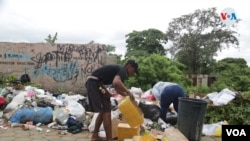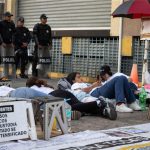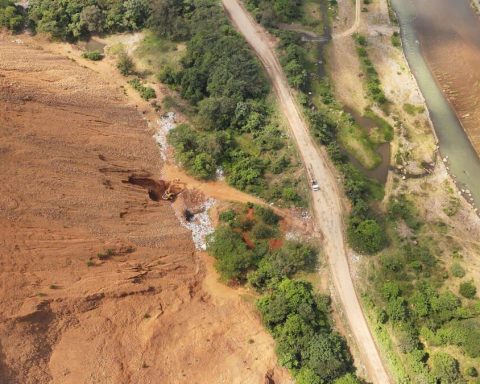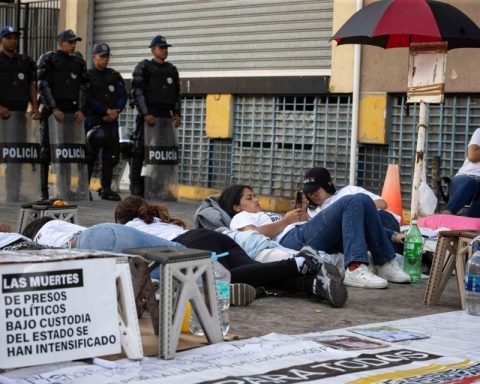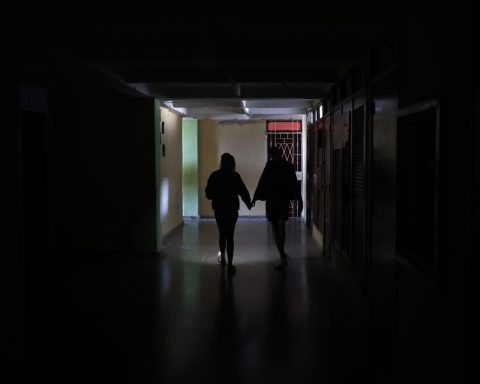Ana Martínez, a 30-year-old Nicaraguan mother of three children, admits that it was a “mistake” to try to take her own life and sought medical help to avoid seeking a solution again in a measure that would also threaten her own family.
His case is not unique. Like Martínez, other Nicaraguans have resorted to or attempted suicide. In 2022 at least 426 people committed suicide in Nicaragua, according to data officers. The figures show a slight increase in relation to 2021, which recorded 365 suicides and 330 in 2020.
According to the World Health Organization (WHO) “77% of suicides occur in low- and middle-income countries.”
“A few months ago I tried to take my life, and many criticized me and told me that I was crazy and honestly, at that moment I did not think about what I was doing,” Martínez told the Voice of America.
According to the Pan American Health Organization (PAHO), suicides and suicide attempts have a “domino” effect that affects not only these people, but also their families, communities, and societies.
Martínez has three children: a 10-year-old boy and two girls, 4 years and 5 months. When she made “that mistake”-she says-she went to the hospital alone to say what had happened and ask for help “for the good of her family”.
“I did it without thinking, I didn’t think about my children, my family, or those who really love me, I just thought about the problem I had,” he admitted.
“I love my children and I don’t want a bad thing for them, a psychologist has been seeing me for about six months and he explained to me that it was all because of postpartum depression, added to everything that happened to me in the past and what is happening in the country and at home,” he says.
Martínez said that as a child she was the victim of sexual abuse, an unresolved trauma that has negatively impacted her life.
Depression associated with the consequences of the crisis
Marcos, a 25-year-old who prefers not to give his last name to protect his identity, told the VOA that he has had several depressive episodes as a consequence of the family division to which he has been exposed.
His brothers left Nicaragua after the 2018 sociopolitical crisis and he was left in charge of his mother, who cries for her other children who are abroad.
“She would like to see them here and is afraid she will die without seeing them off,” he says.
In Nicaragua, suicide ranks 12th among the causes of death published by the Ministry of Health (Minsa), surpassing those who die from other diseases such as those related to the liver, for example.
The information released by the Nicaraguan Ministry of Health does not specify the background of the people who took their lives or if they were undergoing any type of treatment or therapy.
What can lead a person to suicide?
According to the Mayo Clinic, with several offices in US states, suicide is “a tragic reaction to stressful life situations (…) that can be prevented.”
The experts of this American health network maintain that “learning to identify the warning signs of suicide and seeking professional help and treatment immediately” is key to saving lives.
Psychologists consulted for this report indicated that the motivations that drive certain people to attempt suicide are multiple.
According to the family psychologist, Gerardo García, “a person who is thinking of taking their own life has a personal and family history behind it, as well as a certain psychological predisposition.”
But in the case of Nicaragua, for example, there are other factors that may have an impact, including the collateral damage suffered during the sociopolitical crisis in Nicaragua, according to what he told the VOA Costa Rican psychologist Ruth Quiroz Hernández, who collaborates with the Collective Nicaragua Never Again, an organization that supports Nicaraguan refugees.
The psychologist who has worked with migrants for more than 10 years remembers that she herself has experienced traumatic experiences with suicide after dealing with cases that ended in this way, as a young Nicaraguan who made that decision.
“I noticed in his story a lot of frustration, sadness, pain. It was not only what had happened in 2018, but this person had a life story framed by violence. His life story was all linked to political violence, ” remember the psychologist.
And when the crisis arose in 2018, this person thought that one way to end his life was to give his life for his country. So when she goes to the demonstrations, she says that she was willing to die there.
“If they have to kill me, I’m going to die for my country, I’m going to die free and happy because I gave my life for what I love. Unfortunately I didn’t die in the demonstrations. I went to jail, I was sexually abused, I was tortured,” she says .
Finally the young woman decided to take her own life. “She was very impressive,” says the psychologist. “It was a hard learning for me, it was a sad episode but, when I remember her, I remember her in freedom and I think her pain is over and I respect her decision although I know we could have done more, but we didn’t arrive in time because there was a lot of damage” .
Depression and worries: triggers
In mid-June 2021, the WHO reported that each year nearly 700,000 people commit suicide worldwide and suicide is the fourth leading cause of death among young people between the ages of 15 and 29.
Experts emphasize that you have to learn to identify the impact that various circumstances have on people to prevent them from ending tragically.
For example, they mention certain self-destructive behaviors such as the consumption of substances, alcohol, drugs, medication, excesses in this case or some simpler things such as pulling their hair, biting their nails, self-injury such as cutting with razors.
“I think suicide is a subject that should be dealt with as normal,” says psychologist Ruth Hernández, adding that the person who makes the decision to take their own life is someone who has gone through a lot of pain.
“The suffering has reached such a level that it becomes unbearable and this is very common in the Nicaraguan population,” says Hernández, and it has to do with why there are people who have not only been, for example, victims of torture, or siege, or persecution, but they are also people who, despite having survived that, have to go into exile, get away from their family, from their friends.
Connect with the Voice of America! Subscribe to our channel Youtube and activate notifications, or follow us on social networks: Facebook, Twitter and instagramm.
